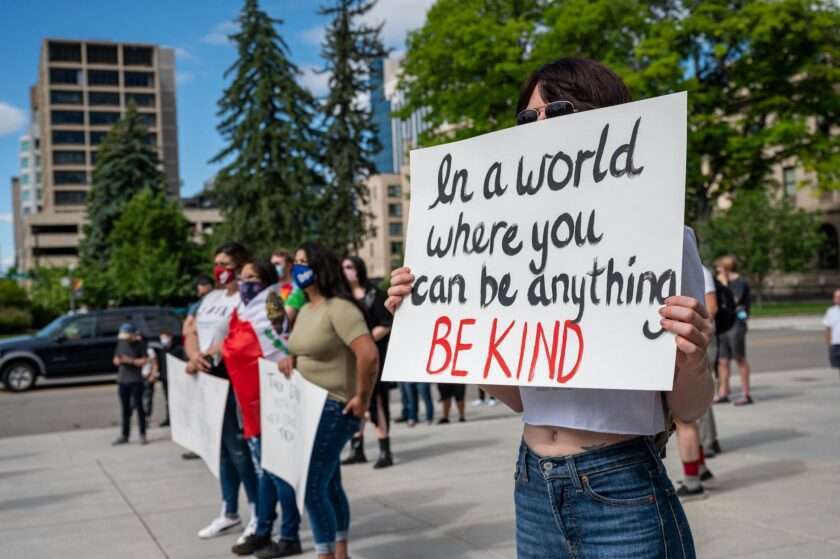What is Right to Equality Under the Indian Constitution?
Right to Equality Indian Constitution- A right to equality usually means that we have a right to expect that the government’s law and applies to everyone equally – if you and I live in the same place, we have to get the same service and have the same responsibilities. If the government treats us differently, there would be a breach of the right to equality.
Examples of unfair treatment
Examples of unfair treatment in the sense that include:
In some Government schools, students treated different for their race,
two people stopped by the police because of the same problem, and one that is imposed with a fine and the others get a warning as he belongs to a rich class
one of the areas getting the care of the roads as its a posh and other services, while others left damaged and never taken care of
Sense of equality based on the assumption
Sense of equality based on the assumption that we all start from the same place but we don’t. certain groups are marginalized or taken more care of. Women are subject to the threat of sexual violence – and sexual violence in fact – in a way that straight men do not. People of color, different languages have been subjected to violence, threats of violence, and slavery. All the groups have been subject to the laws and practices that explicitly and intentionally harmed them.
Fundamental Rights
The Fundamental Rights are basic rights included in the constitution because it is important for the development of each individual’s personality and to preserve human dignity. All people, regardless of race, religion, caste, or gender have been granted the right to move the Supreme Court and the High Court for the enforcement of their basic rights.
Right to Equality from Article 14-18
There are 5 rights under Right to Equality from Article14-18. Some Rights under equality are subjected to reasonable restrictions while some are absolute(no restrictions) for example article 17 of the Indian constitution grants abolition of untouchability, that is no person under the jurisdiction of the Indian constitution can practice untouchability.
File a Suo-moto case against the person violating fundamental rights
If a person has been found following untouchability the police can directly file a Suo-moto case against the person violating the right or else the concerned person can approach the court for violation of his/her fundamental right.
Article 12: Definition of State
In this section, unless the context otherwise required, “the State”, includes the Parliament of India, Central Government and Legislature of each State and all local or other authorities within the territory of India or under the jurisdiction of the Government of India.
Article 13: Laws which are inconsistent with or in derogation of the Fundamental Rights
(1) All laws applicable in the territory of India immediately before the commencement of this Constitution, in so far as they are inconsistent with the provisions of this section, shall, in so far as such inconsistency, be void.
(2) The State shall not make laws that eliminate or abridges the rights granted by this Part and any law made contrary to this article, as far as contending, would be void.
(3) In this article, unless the context otherwise required, –
(a) “law” includes Ordinance, order, bye-laws, rules, regulations, notifications, custom or usage having the force of law in the territory of India;

(B) “laws in force” includes laws made by a Legislature or any other competent authority in the territory of India before the commencement of this Constitution and not previously repealed, although the law or part thereof may not be then in operation either at all or in a particular area
(4) Anything present in this Article shall not apply to any amendment of this Constitution made under article 368.
Article 14: Equality before Law
According to this article, the State shall not deny any person equality before the law or equal protection of the laws within the territory of India or under its jurisdiction.
Article 15: Prohibition of Discrimination on grounds of religion, race, caste, sex or place of birth
(1) The State shall not discriminate against any citizen on the grounds only of religion, race, caste, sex, place of birth.
(2) No citizen shall, on the ground only of religion, race, caste, sex, place of birth or any of them, subject to any disability, liability, restriction or condition with regard to -(A) access to any public places; or
(B) the use of wells, tanks, bathing ghats, roads and places of public resort maintained wholly or partly from state funds or dedicated to the use of the general public.
(3) this Article has a reasonable restriction in which it shall not prevent the State from making special provisions for women and children.
(4) Nothing in this article or in clause (2) or Article 29 will preclude the State from making any special provision for the advancement of socially and educationally backward classes of citizens or for the Scheduled Castes and Scheduled Tribe
Article 16:Right to Equality Indian Constitution/ Right to Equality of opportunity public employment
(1) There will be equality of opportunity for all citizens in matters relating to employment or appointment to any office under the State.
(2) No citizen will on the grounds only of religion, race, caste, sex, descent, place of birth, residence or any of them, do not qualify for, or discrimination in respect of, any employment or office under the state.
(3) This Article is subjected to reasonable restriction so it shall not prevent Parliament from prescribing laws, in terms of class or classes of employment or appointment to any office under the government, or local government or other, territory or Union, any requirement to stay in that area state or Union prior to employment or appointment.
(4) Nothing in this Article shall prevent the State from making provision for booking appointments or posts to support any backward class of citizens.
(4A) Nothing in this Article shall prevent the State from making provisions for reservation in promotion to the class or classes of posts in the services under the State support Castes and Scheduled Tribes which, in the opinion of the State, is not adequately represented in the services under the State.
(5) Nothing in this article shall affect the implementation of the law stipulates that the incumbent from office in connection with the affairs of a religious institution or denomination or a limb thereof will be people who claim a particular religion or belonging to a particular denomination.
Article 17: Abolition of Untouchability
The practice of Untouchability is abolished and the practice of Untouchability in any form is prohibited. Enforcement of any disability arising out of “caste” would be a violation penalty in accordance with the law.
ARTICLE 18: Right to Equality Indian Constitution/Right to Equality by Abolition of Titles
(1) no title, not of a military or academic distinction, shall be given by the State.
(2) No citizen of India will accept any title from a foreign country.
(3) No person who is not a citizen of India shall, while he/she holds the office of profit or trust under the State, accept without the consent of the President any title from a foreign country.
(4) No person who holds the office of profit or trust under the State shall, without the consent of the President, received this honor, or any agency or under a foreign country.
Right to Equality Indian Constitution.



